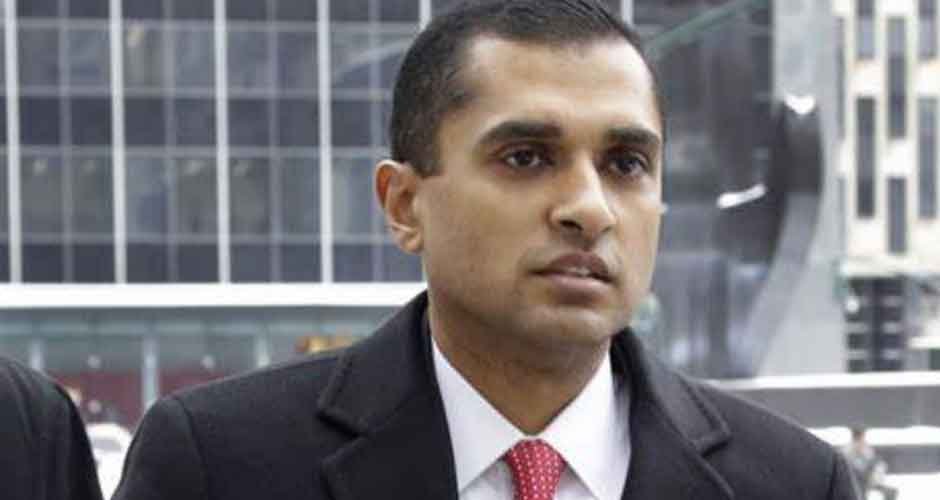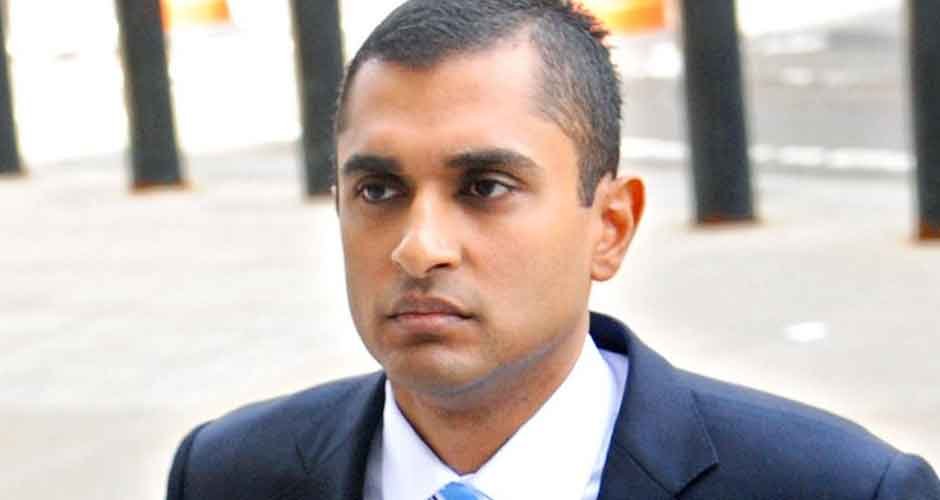Introduction
Mathew Martoma is a former trader for SAC Capital, a now-defunct hedge fund that was once among the most successful and high-profile in the world. Martoma was convicted in 2014 of insider trading, a crime that involves using confidential information to make trades on the stock market. Martoma’s case was notable not only for the size of the alleged profits he made through insider trading but also for the high-profile nature of the case, which involved one of the most powerful hedge funds in the world.
The Insider Trading Case Against Mathew Martoma
Martoma’s insider trading case was built on allegations that he received confidential information from a doctor who was involved in clinical trials for a drug being developed by two pharmaceutical companies, Wyeth and Elan. The drug, which was being tested as a treatment for Alzheimer’s disease, was seen as a potential blockbuster that could generate billions of dollars in revenue for the two companies.
According to prosecutors, Martoma used the information he received from the doctor to make trades that netted him and SAC Capital more than $275 million in profits and avoided losses. Specifically, Martoma allegedly received information from the doctor that the clinical trial results were not favorable, and that the drug was unlikely to receive regulatory approval.
Martoma is accused of using this information to make trades that would benefit SAC Capital by shorting the stock of the two pharmaceutical companies. Prosecutors argued that Martoma made trades that were highly unusual and timed in such a way as to suggest that he had insider information.
Martoma’s involvement with pharmaceutical companies
Martoma’s case was notable not only for the alleged size of the profits he made through insider trading but also for the connections he had with pharmaceutical companies. Martoma had previously worked for several pharmaceutical companies before joining SAC Capital, and he was seen as an expert in the field.
In addition to his work at SAC Capital, Martoma also worked for a firm called CR Intrinsic Investors, which was a division of SAC Capital. While working for CR Intrinsic, Martoma allegedly received confidential information from the doctor who was involved in the clinical trials for the Alzheimer’s drug.
The Role of insider information in Mart Oma’s Trades
Insider trading is a crime that involves the use of confidential information to make trades on the stock market. According to the Commission on Securities and Exchanges (SEC), insider trading is “the purchase or trading of an investment while in possession of material, nonpublic information about a security in contravention of a duty of care or another arrangement of confidence and trust.”
A doctor who took part in clinical trials for a medicine presently being researched by two drug companies allegedly provided confidential information that Mathew Martoma and SAC Capital used to make more than $100,000 in profits and avoid losses through trading.
The Trial and Sentencing of Mathew Martoma
Martoma’s trial began in November 2013 and lasted for several weeks. The prosecution presented evidence that Martoma had received confidential information from the doctor who was involved in the clinical trials for the Alzheimer’s drug and used that information to make trades that netted him and SAC Capital more than $275 million in profits and avoided losses.
The defense argued that Martoma had not received any insider information and that the trades he made were based on publicly available information about the drug. The defense also argued that the doctor who provided the information to Martoma was not a reliable source, and had a history of lying and exaggerating.
In February 2014, the jury found Martoma guilty of insider trading. The judge sentenced him to nine years in prison, one of the longest sentences ever given for insider trading.
Martoma’s Appeal And Subsequent Legal Developments
Martoma’s legal team immediately filed an appeal, arguing that the government had not proven beyond a reasonable doubt that Martoma had received insider information from the doctor involved in the clinical trials. They also argued that the trial judge had made errors in his instructions to the jury.
In December 2018, Martoma’s conviction was upheld by a federal appeals court. The court found that there was “overwhelming” evidence that Martoma had received insider information from the doctor involved in the clinical trials, and that the evidence presented at trial was sufficient to support the guilty verdict.
Martoma’s Release From Prison
In July 2020, Martoma was released from prison after serving only six years of his nine-year sentence. His release was granted due to concerns about the spread of COVID-19 in prisons, as Martoma has underlying health conditions that put him at higher risk of complications from the virus.
The Reasons Behind The Early Release
Martoma’s release was not without controversy, as some argued that he had been given special treatment due to his status as a white-collar criminal. Others argued that the release was justified due to the risk that COVID-19 posed to Martoma’s health, as well as the health of other inmates and prison staff.
Reactions To Mar toma’s Release From Prison
Martoma’s release was met with mixed reactions. Some argued that he had served enough time and that his release was justified, while others argued that he had committed a serious crime and should have served his full sentence.

Legal Repercussions
Martoma’s conviction for insider trading remains on his record, and he is classified as a convicted felon. This status can have significant implications for his ability to find employment or obtain certain licenses or certifications.
In addition, Martoma is still required to pay the $9.38 million fine that was imposed as part of his sentence, as well as forfeit the $275 million in profits that were earned through insider trading. The government has been working to recover these funds, and Martoma will likely be required to pay them in full at some point in the future.
Financial Repercussions
Martoma’s conviction had significant financial repercussions, not only for himself but also for the hedge fund where he worked, SAC Capital.
In addition to the $9.38 million fine that Martoma was required to pay, SAC Capital was forced to shut down as a result of the insider trading scandal. The hedge fund was also required to pay a $1.8 billion fine to settle charges of insider trading.
The closure of SAC Capital was a significant event in the finance industry, and it marked the end of a once-powerful hedge fund. Many employees of SAC Capital lost their jobs as a result of the closure, and the Mathew Martoma insider trading scandal had a ripple effect throughout the industry.
Conclusion
The case against Mathew Martoma was one of the most high-profile insider trading cases in recent history. The court found Martoma culpable of insider trading because he and SAC Capital profited by the millions by trading in confidential information. Because of concerns about the spread of COVID-19, he received parole from prison before completing his nine-year term.
Martoma’s conviction had significant legal and financial repercussions, including the closure of SAC Capital and the payment of a $1.8 billion fine. Martoma’s prospects are uncertain, given the stigma attached to being a convicted felon. The case against Martoma highlights the importance of insider trading regulations and the serious consequences that can result from violating those regulations.






